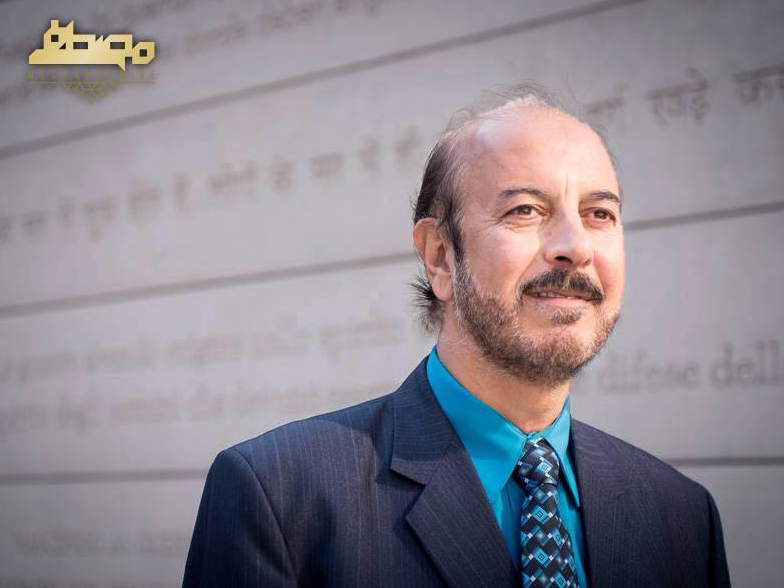Muslim countries have made notable contributions to the World


Zabta Khan Shinwari, the national professor of Quaid-i-Azam University in the note that submitted to the Mustafa(pbuh) science and technology foundation (MSTF), believed that Muslim countries have made notable contributions to the global science and technology landscape, and several prizes worldwide recognize their achievements.
MSTF Media reports:
‘The development of technology and science in Muslim countries
Evaluating the development of technology and science in Muslim countries requires considering various factors and indicators.
1-Research and Development (R&D) investment: Assessing the level of investment in research and development provides insights into a country's commitment to advancing technology and science. This includes government spending, private sector investment, and collaborations with international institutions.
2-Scientific publications and citations: Analyzing the number and quality of scientific publications from researchers in Muslim countries can indicate the level of scientific output and contribution to global knowledge. Additionally, examining citation metrics helps determine the impact and influence of their research.
3-Higher education institutions: Evaluating the quality and reputation of universities and research institutions in Muslim countries is crucial. Factors such as rankings, collaborations with international institutions, research funding, and the presence of renowned faculty members contribute to assessing the development of technology and science.
4-Technological infrastructure: Assessing the availability and quality of technological infrastructure, including internet connectivity, digital literacy, access to scientific databases, and research facilities, provides insights into a country's readiness to embrace and utilize technology and scientific advancements.
5-Patents and intellectual property: Monitoring the number and quality of patents filed by individuals and institutions in Muslim countries demonstrates the level of innovation and technological advancements. It also reflects the emphasis placed on protecting intellectual property rights and fostering entrepreneurship.
6-Collaboration and partnerships: Evaluating international collaborations and partnerships between researchers, institutions, and industry in Muslim countries is important. Collaborations facilitate knowledge exchange, technology transfer, and access to resources, contributing to the development of technology and science.
7-Government policies and initiatives: Examining government policies, strategies, and initiatives aimed at promoting technology and science provides insights into the priority given to these areas. This includes initiatives supporting STEM education, innovation ecosystems, entrepreneurship, and research funding.
8-Human capital development: Assessing the quality and availability of a skilled workforce in science, technology, engineering, and mathematics (STEM) fields is crucial. This includes evaluating educational programs, scholarships, and vocational training aimed at developing the necessary human capital to drive technology and scientific advancements.
It's important to note that evaluating the development of technology and science in Muslim countries should be done with a comprehensive and nuanced approach, recognizing the diversity and varying levels of development across different countries. Furthermore, it is essential to consider the cultural, social, economic, and political contexts that may influence the progress in these areas.
The position of West Asia and the Middle East countries in the field of science
In recent years, several countries in West Asia and the Middle East have been making significant strides in the field of science and technology. While the progress varies across countries, the region as a whole has been investing in research and development, promoting innovation, and fostering technological advancements. Here are some notable aspects of their position:
1-Research and Development (R&D) Investment: Several countries in the region have increased their investment in R&D, recognizing the importance of scientific progress and technological innovation. Countries like Saudi Arabia, Qatar, and the United Arab Emirates (UAE) have allocated substantial funds to support research initiatives and build world-class research institutions.
2-Knowledge Production: The region has witnessed a growth in scientific publications and citations, indicating an increase in knowledge production. Countries such as Iran, Turkey and Saudi Arabia have contributed significantly to scientific literature, covering various disciplines and making notable contributions in fields like medicine, engineering, and materials science.
3-Technological Advancements: Some countries, known as the "Start-up Nation," have fostered a vibrant technology ecosystem, producing innovative solutions in areas like cybersecurity, agriculture, and healthcare. The UAE has been investing in advanced technologies, including artificial intelligence (AI), robotics, and renewable energy, to diversify its economy and become a regional technology hub.
4-Education and Human Capital: Several countries in the region have prioritized improving education in science, technology, engineering, and mathematics (STEM) fields. Institutions like King Abdullah University of Science and Technology (KAUST) in Saudi Arabia and the Qatar Foundation's Education City in Qatar have attracted international students and faculty, contributing to knowledge transfer and talent development.
5-Entrepreneurship and Innovation: The region has seen a rise in entrepreneurship and innovation ecosystems. Countries like the UAE, Iran, and Jordan have established start-up incubators, accelerators, and innovation hubs to nurture local talent, encourage entrepreneurship, and support technology-based ventures.
6-Collaboration and Partnerships: Collaboration with international institutions and industry has been a focus for many countries. Partnerships with renowned universities and research centers worldwide have facilitated knowledge exchange, research collaborations, and access to resources and expertise.
7-National Strategies and Initiatives: Several countries in the region have formulated national strategies and initiatives to promote science and technology. These strategies aim to develop human capital, strengthen R&D capabilities, support innovation, and create an enabling environment for technological advancements.